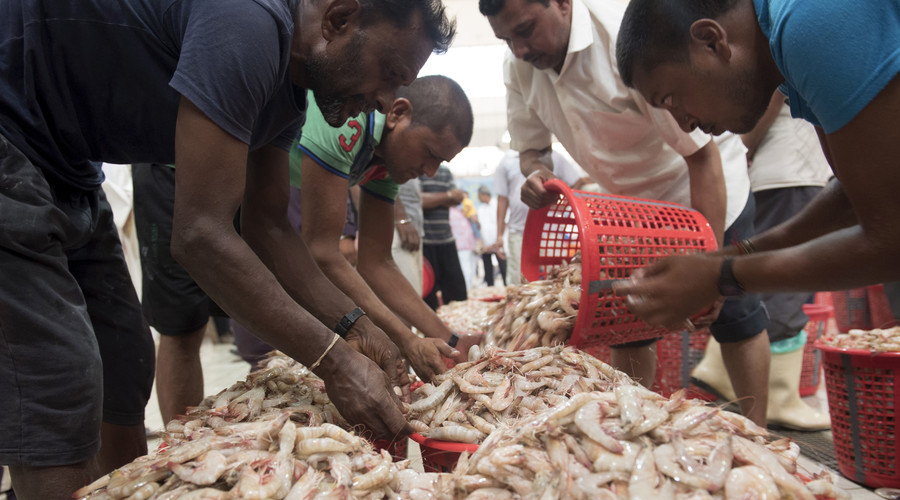The Thai government said today it already knew about slavery and forced labor in its shrimp industry before an investigation by AP came out last week.
Spokesman Sansern Kaewkamnerd said the government wasn’t ignoring the report and that it had already been aware of the issue.
“Authorities found it first,” he said.
Thailand added that seafood exports to the United States, Europe and Australia had not been affected by the reports.
The country is the world’s third-largest seafood exporter, bringing in about US$7 billion annually.
It is facing increasing pressure to crack down on illegal fishing or face the risk of bans on its fish exports and to investigate accusations of slavery in its seafood industry.
Thailand has come under fire from rights groups over allegations of trafficking, abuse and exploitation on its fishing boats, following investigations by media and campaign groups.
“Australia’s seafood importers told us that even though there are problems they would continue buying seafood because Thailand is trying to really resolve the human trafficking problem,” Songsak Saicheua, head of the foreign ministry’s Department of American and South Pacific Affairs, told reporters.
The government had checked more than 100 seafood processing plants and shut down one since April, he said.
“America, Europe and Australia have confidence in importing frozen seafood from us,” Songsak said.
Reuters was not immediately able to contact the U.S. and Australian embassies in Bangkok for comment. The European Commission declined to comment.
Last week, AP released the results of an investigation that found that shrimp processed in plants using forced and child labor in Thailand was in products sold in the US, Europe and Asia.
And last month British-based rights and environment group Environmental Justice Foundation released a report after a three-year investigation into slavery on Thai fishing boats, saying it had uncovered a well-oiled system of trafficking, abuse and exploitation of fishermen, many of them migrants from Thailand poorer neighbours, Myanmar and Cambodia.
That followed a report by Swiss food giant Nestle that slave labor was used in its Thai seafood supply chain, adding to calls to clean up the billion dollar industry dogged for years by allegations of abuse.
The European Union will decide next year whether to ban fish imports from Thailand after it issued Thailand a warning in April for failing to crack down on illegal, unreported and unregulated fishing.
Thailand said yesterday it had worked closely with the EU in rectifying the problem, adding that an EU delegation is due to visit Thailand in January.
Story: Reuters/ Coconuts Bangkok
Related:





Reader Interactions